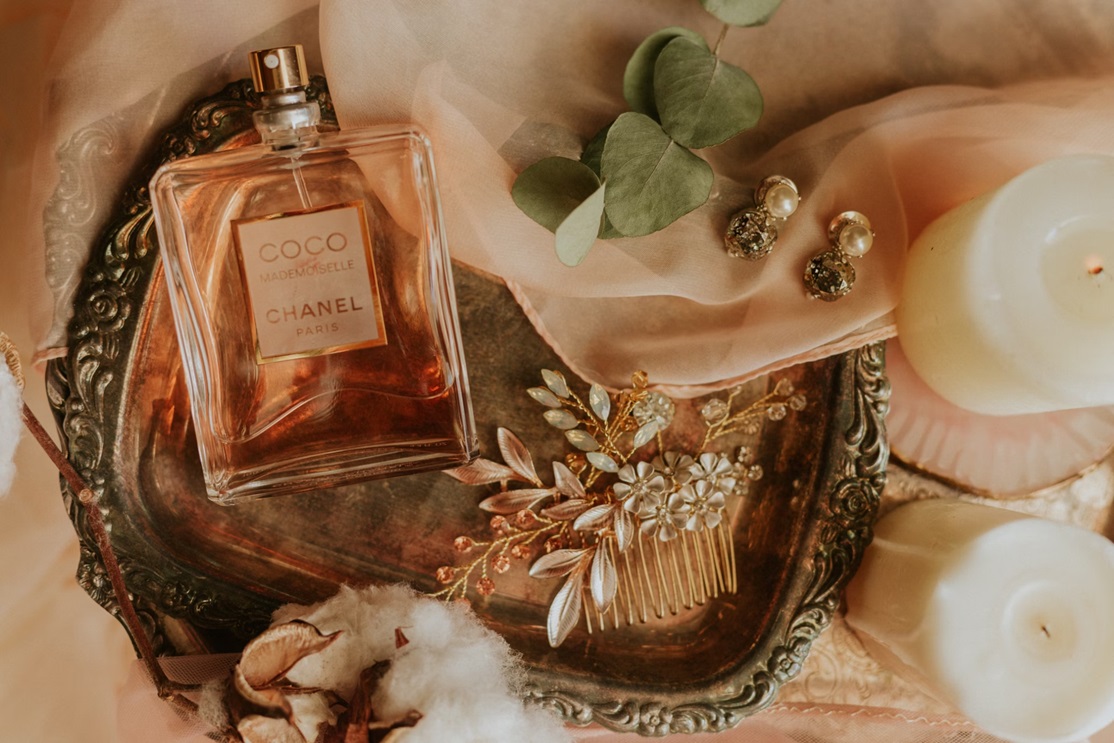
Ever spritzed on a friend’s perfume and fallen head over heels, only to find it smells completely different on you? Frustrating, right? You’re not alone. It’s a common experience and one that even cosmetologists and scientists dedicate time to exploring.
The world of fragrance is a complex one, where chemistry meets personal preference. That signature scent you love on someone else might transform into something unrecognizable on your skin.
But what’s behind this olfactory mystery? And more importantly, how can you find a perfume that truly complements your unique chemistry? Let’s dive into the science behind scents and uncover the secrets to finding your perfect match.
Skin Type and Fragrance Longevity: The Oil Factor
Your skin type, whether dry, oily, or combination, plays a crucial role in how long a fragrance lasts on you. Oily skin, with its abundance of natural oils, tends to hold onto fragrances for extended periods.
These oils act like a magnet, attracting and binding to the fragrance molecules, slowing down their evaporation. This is why those with oily skin often find that heavier, richer scents, such as those in the oriental or woody families, linger beautifully throughout the day.
Dry skin, on the other hand, lacks the natural oils that help to anchor fragrance molecules.
As a result, perfumes tend to evaporate more quickly on dry skin. If you have dry skin, you might find that lighter, fresher scents, like those in the citrus or aquatic families, are a better match, even if they require more frequent reapplication.
Some individuals have combination skin, with oily patches in certain areas and dry patches in others. In this case, it’s important to experiment and find fragrances that work well with both your oily and dry zones.
You might find that a fragrance that works perfectly on your wrist might not last as long on your neck or chest.
The pH Factor
The pH level of your skin, which measures how acidic or alkaline it is, can subtly alter a fragrance’s composition.
Skin that leans towards the alkaline side (higher pH) can amplify certain notes in a perfume, making them more pronounced. Conversely, acidic skin (lower pH) might subdue specific notes, resulting in a softer, more muted scent.
For example, if you have alkaline skin, you might find that musky or animalic notes become more prominent, while floral or citrus notes might be toned down. On the other hand, if your skin is more acidic, you might notice that floral notes bloom beautifully, while musky notes remain subtle.
Understanding your skin’s pH can be a game-changer in your perfume quest. It can help you predict how a fragrance might evolve on your skin and choose scents that are more likely to harmonize with your unique chemistry. You can test your skin’s pH at home using simple pH strips, or consult with a dermatologist or esthetician.
Diet, Hormones, and the Olfactory Symphony
Believe it or not, what you eat and your hormone levels can influence your skin’s chemistry and, consequently, how perfumes react on your skin. Spicy foods, for instance, can temporarily increase your skin’s temperature and oil production, potentially intensifying a fragrance’s projection.
Similarly, hormonal fluctuations throughout your menstrual cycle can impact your skin’s moisture levels and pH. This can lead to subtle variations in how a perfume smells from day to day. For example, you might find that a fragrance smells stronger and more vibrant during ovulation, when estrogen levels are high, and softer and more subdued during menstruation.
Even medications can affect how your skin interacts with fragrance. Some medications can alter your body odor, which can then mingle with the perfume and create unexpected results.
The relationship between diet, hormones, and fragrance is complex and not fully understood.
However, being aware of these factors can help you understand why a perfume might smell different on you at different times. It can also encourage you to experiment and discover how your personal chemistry influences your fragrance experience.
Fragrance Families: Your Roadmap to Olfactory Bliss
With thousands of perfumes on the market, finding your perfect match can feel like searching for a needle in a haystack. This is where understanding fragrance families can be immensely helpful. The fragrance wheel, a visual tool used by perfumers and fragrance enthusiasts alike, categorizes scents into four main families: floral, oriental, woody, and fresh. Each family further branches out into subcategories, offering a nuanced spectrum of scents to explore.
- Floral: This family encompasses a wide range of scents, from delicate rose and jasmine to heady tuberose and gardenia.
- Oriental: These fragrances are warm, spicy, and often feature notes like vanilla, amber, and musk.
- Woody: Think earthy scents like sandalwood, cedarwood, and patchouli.
- Fresh: This family includes citrusy, aquatic, and green scents, often evoking a sense of cleanliness and vitality.
By understanding the fragrance wheel, you can narrow down your search and communicate your preferences more effectively. For example, if you gravitate towards warm, comforting scents, you might explore the oriental family or the woody subcategories. If you prefer light, refreshing scents, the fresh family might be a good place to start.
This knowledge can be especially helpful when seeking guidance from perfume experts at stores or beauty counters.
Instead of simply saying you like “sweet” or “spicy” scents, you can specify that you prefer gourmand fragrances (sweet with notes like chocolate or caramel) or oriental spices (think cinnamon, clove, or cardamom). This will help them recommend fragrances that are more aligned with your preferences.
Kenneth Shuler School of Cosmetology: Your Gateway to a Fulfilling Career in Beauty
Since 1968, the Kenneth Shuler School of Cosmetology has helped launch the careers of thousands of beauty professionals.
With eight campuses conveniently located across South Carolina, we make it easy for aspiring beauty professionals to pursue their dreams. Our Goose Creek campus is located just a short drive from Charleston, SC.
Are you ready to try to transform your passion for fragrance into a beauty career? Learn more about the comprehensive cosmetology program at Kenneth Shuler and unlock a world of endless possibilities in the beauty industry.



